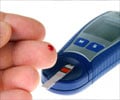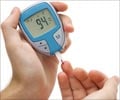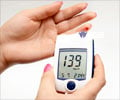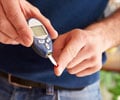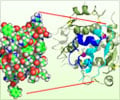Blood Glucose Checks
Monitoring of blood glucose on daily basis is recommended for patients treated with insulin.
All individuals having diabetes whether it is Type I or Type II or gestational diabetes should keep a track of their blood glucose levels. Also, people who have complications of diabetes should monitor their blood glucose levels.
The frequency of monitoring required depends on the type of diabetes and the mode of treatment -
- A newly diagnosed diabetic on a controlled diet with adequate physical activity should check blood glucose once in 2-3 weeks.
- Those on oral hypoglycemic agents (OHAs) should check blood glucose once in 8-10 days.
- Those having Type I or Type II diabetes on insulin must check the blood glucose levels once in every 3 days.
- Those having gestational diabetes or pre-gestational diabetes have to check glucose readings 1-2 times per day.
- Those on insulin pumps or in whom the insulin dose depends on the last glucose reading may have to check it 3-4 times a day.
- Those undergoing surgery or certain procedures should check it 3-4 times a day. This is mostly done at the hospital.
- An extra test should always be done if one is experiencing hypoglycemia.
- Also, in case the medications are altered, the patient will be informed by the health care team about the extra tests that needs to be performed.
- A midnight test (2.00-3.00 am) is suggested for those who have tendency to have low blood glucose at night and high blood glucose levels in the early-morning hours (dawn phenomenon).
The more number of times one checks the blood glucose level, the better the control. These checks, however, also depend on how often one may willingly prick oneself and the affordability to spend on the test (one test strip on an average costs about Rs.25). Sometimes the work schedule of a person may not permit frequent tests.
It is important to remember that checking and monitoring is the only way to ascertain a tight control of the glucose levels and ensure right medication. Research untill now has failed to come up with a non-invasive test for monitoring the sugar levels in the body.





